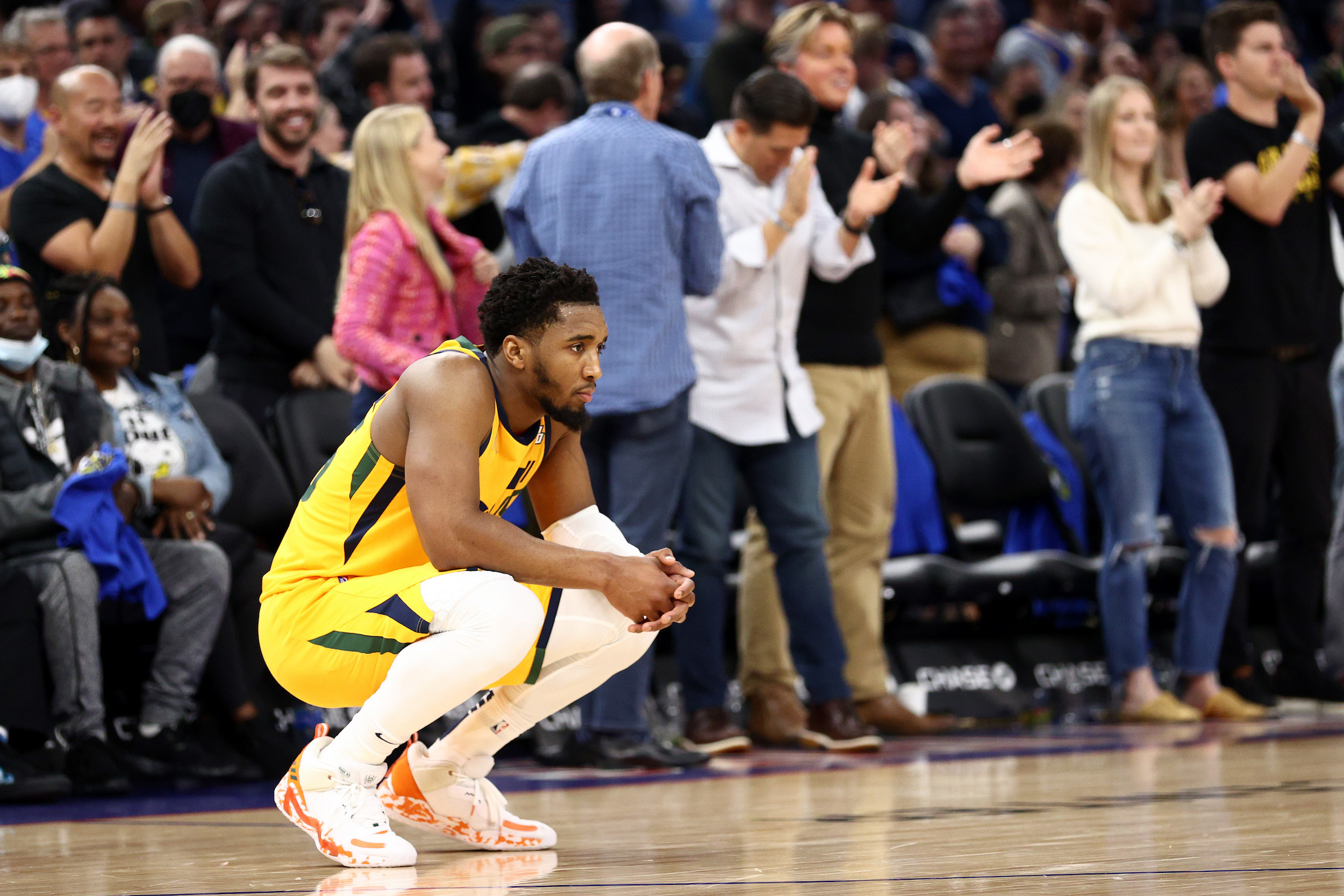The Utah Jazz finally traded Donovan Mitchell Thursday, sending their star guard to the Cleveland Cavaliers in exchange for a package of young players and future draft picks. The term commonly used to group together players who might one day become good, and draft picks which might one day be redeemed for players who might one day become good, is "future assets;" the Jazz, following Thursday's trade and the earlier Rudy Gobert trade, are now fat with future assets. Their roster, which two years ago was good enough to post the league's best regular-season record, has now been stripped of its best players; with CEO of basketball operations Danny Ainge in asset-collection mode, the Jazz are probably not done swapping present value for hazy future value.
Jazz fans had to expect something like this when the team hired Ainge following his exit from Boston in 2021. Ainge is maybe the best in the business at stockpiling future assets, and has shown somewhat less comfort risking any of his chips in an effort to bring a team from good to great. The back half of his time in Boston was marked by all the fancy trades he almost made, but the Celtics enjoyed a solid six-year stretch where they were both a good and fun basketball team and held a formidable stockpile of coveted future draft picks. In Utah, Ainge inherited a team that had already done the hard work and had the good fortune required to become good, but with a cupboard more or less bare of future goodies, and bumping its head against a disappointingly low ceiling.
That's not an impossible situation, however much basketblogger types and the terminally GM-brained might throw around terms like "treadmill of mediocrity." Teams can, have, do, and will maneuver their way up from precisely the spot the Jazz found themselves in after last season, and without detouring into the bottom part of the standings. But given his success in Boston, and given the powerfully negative vibes in Utah after their latest playoff collapse, it's perfectly reasonable for Ainge to prefer this route. Anyway he's certainly off to a roaring start, loading up the Jazz with an eye-popping haul of future draft picks with just the first few moves of this tear-down. Veterans Mike Conley, Bojan Bogdanovic, and Jordan Clarkson could probably also fetch some draft picks in trades; certainly they will make much more sense playing out their contracts for teams who hope to win now rather than at some uncertain point in the future.
Tanking will be a new experience for Jazz fans, who over the last four decades have watched just five total seasons of sub-.500 basketball. Gordon Monson of the Salt Lake Tribune penned a downright funereal farewell to Mitchell, who "breathed life" into the Jazz following the heartbreaking loss in free agency of Gordon Hayward, and who now takes with him the last of the fanbase's lofty visions of a run at a championship. The Deseret News devotes a solid third of its analysis of the trade to explaining to Jazz fans how to root for a bottom-feeder, for however long this unpleasant and unfamiliar condition lasts:
Progress is going to be measured differently. For years the Mitchell and Gobert-led Jazz were trying to make the leap from good to great, but this won’t be that team anymore. The NBA playoffs can’t be used to measure improvement for this team anymore.
Instead progress will have to be based on if a player can cut down on their turnovers, if another can improve their passing, can learn to defend without fouling. Learning to celebrate small and moral victories will be absolutely necessary.
Sarah Todd, Deseret News
The Jazz haven't truly stunk since the Ty Corbin-led mess of 2014, when Gobert was a wiry rookie oddity, and a wildly underperforming roster won just 25 games. That was a blip: Quin Snyder took over the following season, Hayward made a leap as the team's main offensive engine, the Jazz posted the league's top defense, and only an outrageously deep Western Conference kept them from nipping at the shirt tails of the playoff pack. They've been good, more or less, ever since, with a firm identity built around Gobert's rim protection, swapping out Hayward for Mitchell as the team's lead shot creator in Snyder's offense. The Jazz have long been admirably, even heroically opposed to pursuing the more gruesome forms of roster reconstruction; their only other sub-35-win season since 1982 came in 2005, with an absolutely horrendous rotation headlined by Carlos Boozer and Andrei Kirilenko, and was followed immediately by a 41-win season, and then by a trip to the conference finals.
There's nothing that says the Jazz will definitely stink next season. Collin Sexton can do a decent Mitchell impression; Lauri Markkanen can play a little; Talen Horton-Tucker is probably better than he showed in Los Angeles. There's a non-zero chance the Jazz will play respectable basketball and improve over the course of the season and give their fans something to feel excited about beyond the uncertain promise of future draft picks. But it's been a long time since Jazz fans have had to endure the indignity of sustained losing as a cost of assembling a team they could feel proud to support. Maximizing the asset-collection business is about putting off being good for as long as is tenable and grabbing up every available reward for sucking. If Jazz fans thought rooting for a well-built and well-coached team that bombed out of the playoffs every year was frustrating, wait until they've experienced a couple seasons of sub-mediocrity and obscurity, hoping that this or that teenager one day becomes as good as any of the very good guys their team is now flinging away.






